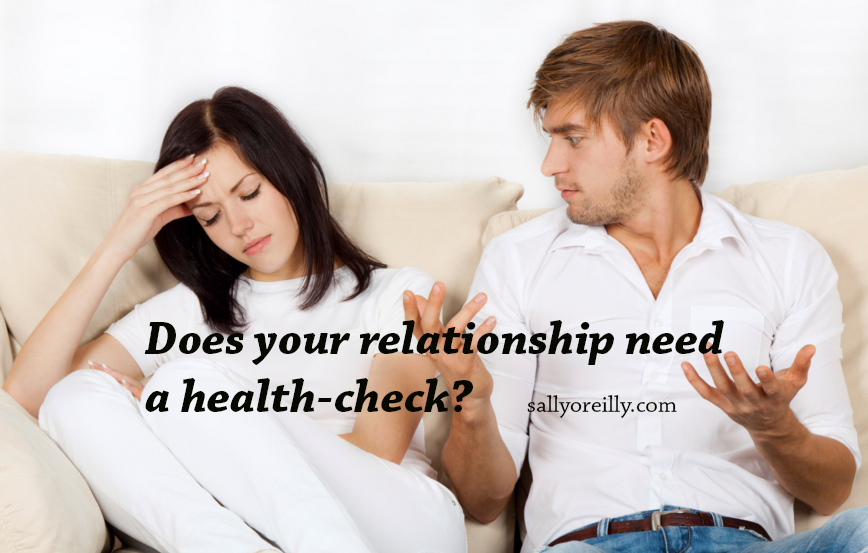“Is our relationship healthy? Is it normal? Are we OK?”
These questions come up all the time in therapy – actually, if you’re lucky, they come up over coffee with friends! You’ve maybe had those conversations, praying that your friends will say “Ya! – we fight more than you do actually – you have it sown UP compared to us!”.
We all ruminate on the quality of our romantic partnerships. Particularly at the beginning, while trying to figure out if we want to stay in this new arrangement. Dating and everything related to it is one of the most discussed things in real life and on-line.
#statusupdate !! Maybe we’re a bit obsessed I suppose …
Asking if our relationship is normal and healthy is a great place to start being in a healthy relationship. If we’re not asking that question, we drift along without questioning the quality of our contact with our partner.
First of all, it is important to know that ‘normal’ and ‘healthy’ do not suggest or mean the same thing. Maybe our relationship is just like our friends’ relationships, or our parents’, and so it is technically ‘normal’. But that does not make it healthy.
Maybe it is a normal relationship for you! Sometimes, normal feels bad, as well as ‘normal’. Does that sound familiar? Your version of normal might be to feel or fear hurt, rejected, judged, afraid, trapped, even abused by your partner. And that might be occasionally or even often.
So what might be normal for you, might not be healthy for you.
There is no absolute checklist for ‘normal’ and ‘healthy’ and that’s because there are so many human beings – what’s good for some might be dull for others.
For example, ‘normal’ might be that one of you always does all the cooking. And there is nothing at all wrong with that. Except that ‘normal’ turns into ‘unhealthy’ if cooking is something you don’t want to do all the time, if you feel forced to do it, intimidated into doing it, or if it’s ( ie you are) taken for granted, or mocked, insulted or controlled into cooking a certain way.
Substitute sex, money, pastimes, housework, socialising, choice of neighbourhood for the word ‘cooking’ – these are all common ‘hot topics’ in relationships, one way or another.
While there are many variables in terms of what couples accept as ‘normal’ in their relationship, there are some basics that apply in order for a relationship to be considered ‘healthy’ – read through them and see how (if) they resonate:
- You have no fear of saying something that will result in your partner’s anger or withdrawal.
- You feel supported and encouraged by your partner to do what makes you happy.
- You support your partner similarly.
- You both understand that you’re responsible for your own feelings and that you can share feelings of love.
- You don’t expect each other to ‘complete’ each other.
- You have a friendship.
- You laugh and have fun together.
- Finances are a joint responsibility and are openly discussed.
- Household care is a shared negotiated responsibility.
- Childcare is a shared negotiated responsibility.
- You look forward to seeing eachother.
- You trust your partner.
- You respect your partner.
- You do not intentionally hurt your partner and they don’t you.
- You have a sex life that you both enjoy.
- You are affectionate with each other.
- You are able to apologise to your partner and they to you.
- You share basic values, maybe religion, maybe political.
- You allow for differences in opinions and don’t coerce or manipulate the other to be as you are.
- You don’t feel controlled by your partner and you don’t try to control them – who they meet, where they go, how much they spend etc.
These are often the things that routinely emerge in individual and couples’ therapy when discussing relationships. They may or may not emerge over that coffee with your friends because we’re still not great at saying when things aren’t great.
So, if you want to do a quick ‘check-up’ on your relationship then maybe this is where you can start – maybe you and your partner could read this together? Maybe you can use it to start a discussion with your friends over coffee?
If you have a teen who is just starting out, showing them this or even reading it with/to them might help them to understand the difference between a nurturing relationship and one that is anything but. Everything we do models to our children how to be in a relationship. How to be a partner, how to be a person. This is worth considering!
And if you notice resistance to the idea of reading through this (from someone else, or even yourself!), that may be a gentle warning that all may not be as well as you would like. But that’s OK – all of this is workable, one way or another!!
Meanwhile, enjoy yourselves and each other. Relationships are supposed to be enormously enriching, supportive and fun. Communication and safety are key necessary components of a healthy relationship.
PS: As an aside – you could apply most of this checklist to your platonic and same sex friendships as well!
Important: If you have just become aware that you are being abused, please seek help. Google support networks near you (Mná Feasa, AMEN (for men),Rape Crisis Network, Women’s Aid) – they are there for you, use them. In the U.S., you will find helpful resources at: www.loveisrespect.org.

One thought on “Does your relationship need a health-check?”